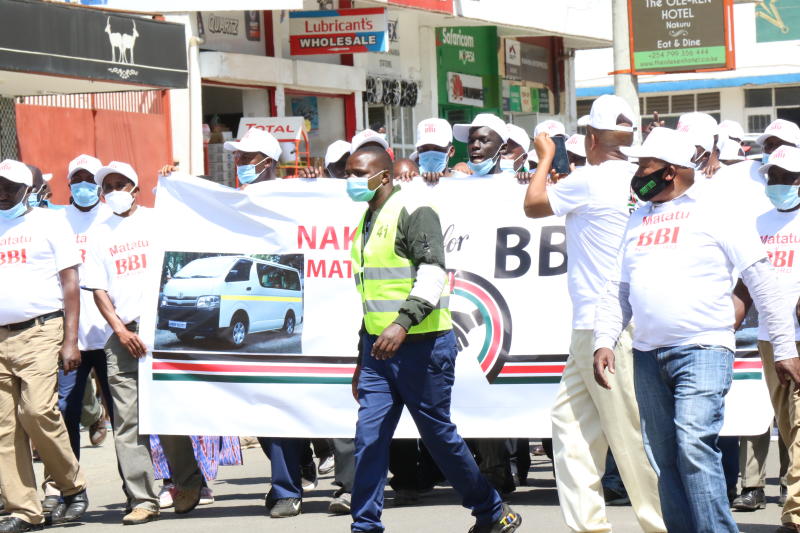×
The Standard e-Paper
Smart Minds Choose Us

A procession in support of BBI. Politics is easier and appeals to our emotions more than economics. [Kipsang Joseph, Standard]
The Building Bridges Initiative (BBI) has become a lightning rod in Kenya’s political arena. It has stopped being a bridge, with a river of differences between opposing parties.